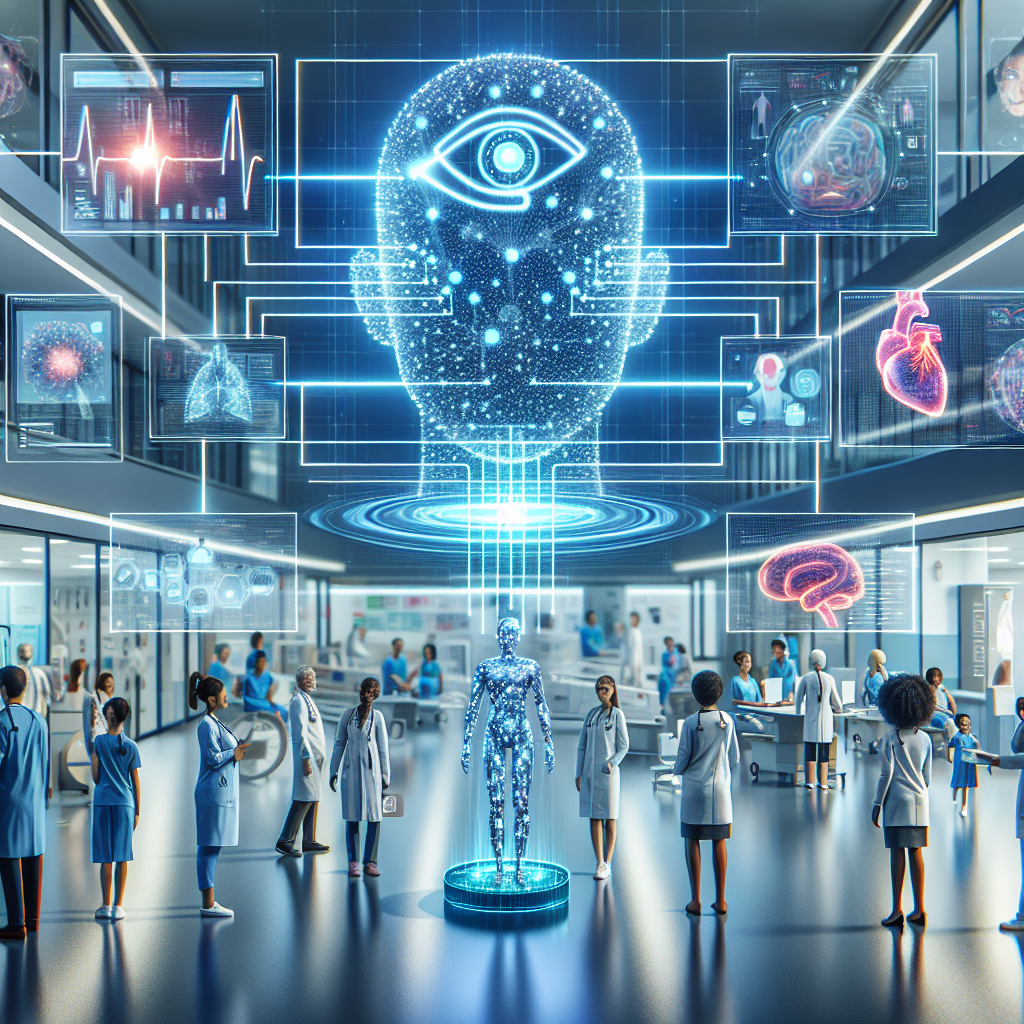Artificial General Intelligence (AGI) has the potential to revolutionize healthcare by improving patient care and diagnoses. AGI refers to a type of artificial intelligence that possesses the ability to understand, learn, and apply knowledge across a wide range of tasks, similar to human intelligence. In healthcare, AGI can be used to analyze large amounts of patient data, assist in diagnosing diseases, develop personalized treatment plans, and even predict future health outcomes. This article will explore the impact of AGI in healthcare and how it is transforming the way healthcare is delivered.
AGI in Healthcare: Revolutionizing Patient Care and Diagnoses
The healthcare industry is constantly evolving, with new technologies and innovations being introduced to improve patient care and outcomes. AGI is one such technology that has the potential to transform healthcare by providing advanced analytics and insights that can help healthcare providers make more informed decisions. By leveraging AGI, healthcare professionals can access a wealth of data and information that can be used to improve patient care and diagnoses.
One of the key benefits of AGI in healthcare is its ability to analyze large amounts of patient data quickly and accurately. This can be particularly useful in diagnosing diseases and identifying treatment options. For example, AGI can analyze medical images, such as x-rays or MRI scans, to detect abnormalities or signs of disease that may be missed by human eyes. This can lead to earlier diagnosis and treatment, improving patient outcomes and reducing the risk of complications.
In addition to diagnosing diseases, AGI can also help develop personalized treatment plans for patients. By analyzing a patient’s medical history, genetic information, and other relevant data, AGI can identify the most effective treatment options based on the individual’s specific needs. This personalized approach to healthcare can lead to better outcomes and improved patient satisfaction.
Furthermore, AGI can also be used to predict future health outcomes and identify potential risks before they occur. By analyzing trends in patient data, AGI can help healthcare providers identify patients who may be at risk for developing certain conditions or experiencing complications. This proactive approach to healthcare can lead to early interventions and preventive measures that can improve patient outcomes and reduce healthcare costs.
Overall, AGI has the potential to revolutionize healthcare by providing advanced analytics and insights that can help healthcare providers make more informed decisions, improve patient care and diagnoses, and predict future health outcomes. By leveraging the power of AGI, healthcare professionals can provide better care to patients, reduce the burden on healthcare systems, and ultimately save lives.
FAQs:
Q: What is AGI?
A: AGI stands for Artificial General Intelligence, which refers to a type of artificial intelligence that possesses the ability to understand, learn, and apply knowledge across a wide range of tasks, similar to human intelligence.
Q: How is AGI used in healthcare?
A: AGI can be used in healthcare to analyze large amounts of patient data, assist in diagnosing diseases, develop personalized treatment plans, and predict future health outcomes.
Q: What are the benefits of using AGI in healthcare?
A: The benefits of using AGI in healthcare include improved patient care and diagnoses, personalized treatment plans, and the ability to predict future health outcomes.
Q: How can AGI improve patient outcomes?
A: AGI can improve patient outcomes by providing advanced analytics and insights that can help healthcare providers make more informed decisions, diagnose diseases earlier, develop personalized treatment plans, and predict future health outcomes.
Q: Are there any risks or challenges associated with using AGI in healthcare?
A: While AGI has the potential to revolutionize healthcare, there are also risks and challenges associated with its use, such as data privacy concerns, ethical considerations, and the need for regulatory oversight.
In conclusion, AGI has the potential to revolutionize healthcare by improving patient care and diagnoses. By leveraging the power of AGI, healthcare professionals can access advanced analytics and insights that can help them make more informed decisions, develop personalized treatment plans, and predict future health outcomes. While there are risks and challenges associated with using AGI in healthcare, the benefits far outweigh the potential drawbacks. As technology continues to advance, AGI is poised to transform the way healthcare is delivered, leading to better outcomes for patients and a more efficient healthcare system.

